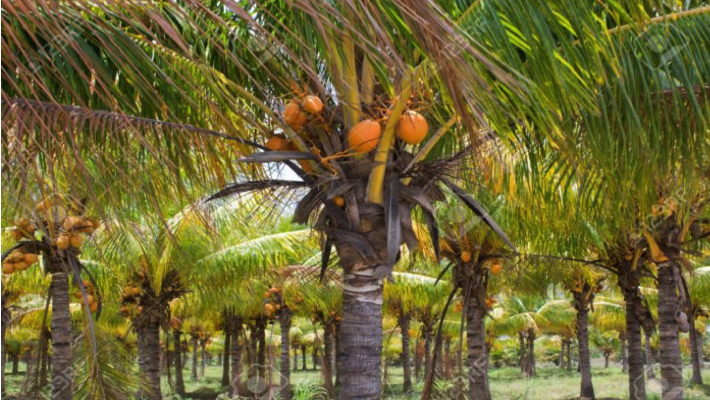The saying that different strokes for different people comes into play when you consider the drop in the prices of food items in Nigeria today. Consumers are happy, so also is the government because it reduces the pressure on the government. But farmers are not celebrating what is seen as a good development by the consumers and the government. The reason for the farmers’ angst is that it has brought about a negative effect on their business, as they suffer losses.
While they have the large market for their products the rates are not in anyway inviting. The high prices of farm inputs and other expenses as well as the running battles with the criminal elements who raid the farms have contributed to increase capital investments in farming and therefore resulting in great losses after harvest.
Farmers who more affected by the development are in Borno, Adamawa and Yobe states. They have, therefore , identified insecurity and sharp drop in prices of food items as some of their major challenges. This was found out in a survey conducted by the News Agency of Nigeria (NAN).
According to the farmers, the sharp drop in food prices by almost 50 per cent is not altogether soen good news for them, even as they have to contend with insurgents’ attacks and the invasion of criminal herders. These, they said, have threatened their livelihood and productivity.
In the survey, a farmer in Yola-North, Mr Williams Zamdai, who cultivated rice, maize, beans and guinea corn, said he was reluctant to take his produce to the market due to fear of recording losses.
He lamented, “Last season, we sold a bag of maize for between N60,000 and N70,000. But now it has dropped to N35,000.
“ In contrast, the cost of inputs such as fertiliser and tractor services have gone up. To hire a tractor for a single trip now costs about N50,000.”
Mr. Zamdai may not be too current with the prevailing rates in the market, as Mr Jonathan Babangida, another farmer in Madagali, Adamawa, noted that the price of a bag of new maize had further crashed from N35,000 to N20,000, even before the peak of harvest.
The rate given by Mr. Zamdai subsists in Borno state. This is because the state chairman of the All Farmers Association of Nigeria (AFAN), Alhaji Alamin Umara, also said a bag of maize sold for N60,000 in June now sells for N35,000.
And wait for this, “ The price of beans has dropped by almost 40 per cent. Farmers are worried that they may not recover the cost of production,” Umara said.
A farmer in Nguru, Yobe, Alhaji Garba Bilal, said the price of paddy rice dropped from N60,000 in 2024 to N30,000 now.
He added that the price of white beans which was sold for N100,000 in 2024, now sold for N50,000.
An agriculturist in Adamawa, Dr Obadiah Noah, attributed the drop in prices to large importation of grains into the country, thereby flooding markets with commodities.
He said the policy was designed to bring down the prices of food recorded in 2024, instead it brought untold hardship to farmers who needed profit to stay in the business.
So, what is the way out? Noah said, “ What we are seeing is not just a seasonal fluctuation. The market is unregulated and there is little government intervention in stabilising prices.”
Noah, a retired Director with the Federal Ministry of Agriculture, insisted that unless farmers accessed enhanced storage facilities, guaranteed off-take arrangements, the drop in prices might continue.
But why did the government which banned imports as soon as it took power decide to open the borders for foreign food items? Mohammed Maitela, another agriculturist in Gashua, Yobe, has the answer. He said that the price crash was compounded by massive hoarding of grains in 2024.
“ Most merchants and other individuals massively hoarded grains and other commodities in 2024 with the expectation that the produce would have more value in 2025.
“ Unfortunately for them, that did not happen; then the policy of massive importation gained momentum.
“ This forced the hoarders to bring out their commodities for sale, thereby flooding the markets.”
In Borno, Umara attributed the price crash partly to the influx of newly harvested produce into the market and the ban on large scale grains’ export by some state governors.
“The suspension of large-scale grain exports to neighbouring countries, though aimed at ensuring food sufficiency, has reduced external demand.
“This has led to a glut in the local markets,” he said.
However , if those factors are self inflicted, that of insecurity is a cause for concern. Bello Muhammad, a farmer in Zabarmari, Borno, said insurgents’ attacks on farms during harvest and when transporting produce to the market were on the rise.
He said, “Some of our members were recently robbed of their harvests along the Zabarmari–Dusuman Road near Maiduguri.”
Zamdai also said that clashes between farmers and herders in Yola-North, Adamawa, often led to the destruction of farmlands.
He, however , believe that there is a way out of the crisis. He suggested that the state government should buy off farm produce from farmers at competitive prices and establish grain reserves for storage.
Babangida, a maize farmer, explained how this will ease the pains of the farmers. He said that farmers in Madagali, Adamawa, often stored their grains in rented stores, adding that storage costs and labour had increased significantly.
“Before now, selling two or three bags of produce could cover storage costs, but now I have to sell up to 10 bags to pay for it. Labour costs have also doubled,” he said.












